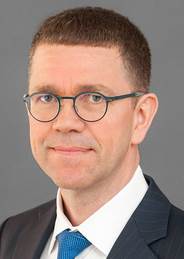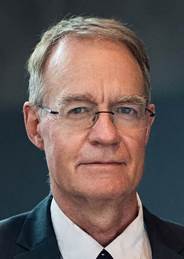5th Annual Nordic Cyber in Finance Conference

On Friday 30 September 2022, the Central Bank of Iceland (Seðlabanki Íslands) hosted the 5th annual Nordic Cyber in Finance conference in co-operation with the other Nordic central banks. The conference has proven to be an excellent venue for people within the financial industry and government agencies, as well as a cross-sectoral arena for knowledge sharing on cyber issues.
The conference programme is accessible here on the website, but the focus of this year‘s conference was on cybersecurity from the standpoint of financial stability and national security, including important infrastructure and the use of cloud solutions. The agenda included input from experts from both public and private sectors on various cyber and security issues, as well as a panel discussion on the role of central banks in cybersecurity and the organisation of cyberdefence.
Registration closed Monday September 26. If you have any questions, please contact us: nordiccyber@sedlabanki.is
Previous conferences:
4th Annual Nordic Cyber in Finance Conference
3rd Annual Nordic Cyber in Finance Conference
2nd Annual Nordic Cyber in Finance Conference
1st Annual Nordic Cyber in Finance Conference
Program
Nordic Cyber in Finance conference
30 September 2022, in Harpa Concert and Conference Hall, Reykjavík
Morning session
08:30 Registration and coffee
09:00 Welcome and introductory speech
Gunnar Jakobsson, Deputy Governor of Financial Stability
09:15 Mitigating Risks from Sophisticated Threats: National States and Organized Criminals
Phil Venables, CISO, Google Cloud
09:40 Cyber Threats – Case Study
Marcus Murray, Founder, Truesec
10:05 National security and cyber – critical infrastructures – an Icelandic perspective
Guðmundur Arnar Sigmundsson, Director of Cert-IS
10:30 Coffee
10:50 Panel discussion on national security
Panel Moderator: Brynja Huld Óskarsdóttir, Defence and Security Analyst
Participants: Víðir Reynisson, Chief Superintendent of the Office of the National Commissioner of the Police, Björn Bjarnason, former Minister of Justice, Unnur Kristín Sveinbjarnardóttir, Head of Department at the Electronic Communications Office of Iceland, Jóna Sólveig Elínardóttir, Head of Department at the Ministry of Foreign Affairs, Jacqueline Mallett, Assistant Professor at Reykjavík University
11:50 Defense in depth and cyber attack simulation
Höskuldur Hlynsson, Chief Risk Officer, Central Bank of Iceland
12:30 Lunch
Afternoon session
13:30 National cyber security policies – the importance of cooperation
Morten Tandle, General Manager, NF-CERT
14:00 Cloud services in light of national security concerns
Robert A. Kondilas, Division Chief, International Monetary Fund
14:30 Central banks – financial stability and cyber
John Fell, Deputy Director General, ECB
15:00 Coffee
15:15 Cyber and banking system resilience in Ukraine at the time of the war / Q&A
Pervin Dadashova, Director of Financial Stability, National Bank of Ukraine
16:00 Panel discussion on the role of central banks in cyber security and the organisation of cyber defence
Panel moderator: Beju Shah, Head of BIS Innovation Hub Nordic Center
Participants:
Per Callesen, Governor, Danmarks Nationalbank
Gunnar Jakobsson, Deputy Governor of Financial Stability, Central Bank of Iceland
Tuomas Valimaki, Board Member, Bank of Finland
Anna Grinaker, Director of Financial Infrastructure, Norges Bank
16:45 Closing remarks
Gunnar Jakobsson, Deputy Governor of Financial Stability
17:00 Closing reception
Speakers, panelists and panel moderators

Anna Grinaker, Norges Bank
Anna is director of the Financial Infrastructure unit at Norges Bank. The unit oversees central parts of the Norwegian payment system and financial infrastructure. In the period 2006 to 2011, she worked in the Financial Markets Department of the Ministry of Finance. Before joining the ministry, she worked at the Norwegian Financial Supervisory Authority supervising investment companies and investment funds. In the spring of 2022, she participated in the Norwegian Defense University College Senior Executive Course. Anna Grinaker graduated in social economics (Cand.oecon.) from the University of Oslo in 1999.

Beju Shah - Head of the Nordic Centre of the BIS Innovation Hub
Beju leads a portfolio of projects on CBDC, Cybersecurity, Next Generation Financial Market Infrastructures and Green Finance. Before joining the BIS he was Special Advisor for Digital Innovation at the Bank of England plus a variety of other roles across a decade, leading digital and data strategies, catalysing innovation including a leading role in the success of its FinTech Accelerator and an industry award for the ‘Best Use of RegTech’ at the 2018 Banking Technology Awards. He has a background in Artificial Intelligence.

Björn Bjarnason - Former Minister of Justice
Graduated in Law (cand. jur.) from the University of Iceland in 1971.
Editor at Almenna bókafélagið (book publisher)1971-1974.
Foreign News Editor, Vísir 1974.
Deputy Secretary General Prime Minister´s Office1975-1979.
Editorial writer Morgunblaðið 1979-1984, deputy-editor 1984-1991.
MP for Reykjavik for the Independence Party (right of centre) 1991-2009.
Minister of Education, Science and Culture from 1995-2002.
Reykjavik City Council 2002-2006.
Minister of Justice and Ecclesiastical Affairs 2003-2009.
Tasked October 2019 by the Nordic Foreign Ministers to write proposals on Nordic Foreign and Security Policy 2020, Published July 2020.

Brynja Huld Óskarsdóttir - Defence and Security Analyst
Brynja Huld is a defence and security specialist. She began her career in broadcast journalism but has since spent the majority of her career on topics surrounding terrorism, extremism and geopolitics, both as an analyst for Janes Terrorism and Insurgency Centre in London and as a lecturer at the University of Iceland, where she lectures on terrorism, radicalisation and international security. She's held a variety of communications roles such as a strategic communications officer for NATO in Afghanistan, campaign manager for UN Women, partnership specialist at the Council of Europe in Strasbourg and Chief of Staff at Avo. She's recently joined the Icelandic Ministry for Foreign Affairs, as part of the Directorate for Defence working on hybrid threats, including cyber.

Guðmundur Arnar Sigmundsson - Director of Cert-IS
Guðmundur is the director of CERT-IS. He graduated as a telecommunication engineer from the University of Karlsruhe in Germany in 2008 with special emphasis on cybersecurity. He worked for different vendors and ISP’s in the private sector up until he took on his current position at leading the rapid build-up of the Icelandic national CERT team.

Gunnar Jakobsson - Deputy Governor for Financial Stability - Central Bank of Iceland
Gunnar has been the Deputy Governor for Financial Stability at the Central Bank of Iceland since March 1, 2020. Prior to joining the Central Bank he was Managing Director at Goldman Sachs in New York and later in London, where he managed various operational, market, and liquidity risk functions. He joined Goldman Sachs after graduating from Yale University in 2001.
Earlier Gunnar worked as a lawyer for the Icelandic Parliament, for the District Commissioner’s Office in Reykjavik, and in private practice.
Gunnar has a law degree from University of Iceland and an MBA from Yale University.

Höskuldur Hlynsson - Chief Risk Officer of the Central Bank of Iceland
Höskuldur was appointed the Chief Security Officer of the Central Bank of Iceland in January 2022 and interim Chief Risk Officer of the Central Bank in September 2022. Prior to that, he was the Security Officer and the Data Officer at Arion Bank, an Icelandic retail and commercial bank. Other experience includes designing and implementing risk management systems for market, liquidity, and credit risk, i.a. for the SAS Institute. He holds a master’s degree in computational logic from the University of Amsterdam.

Jacqueline Mallett - Assistant Professor at Reykjavík University
Dr Jacky Mallett is an Assistant Professor in the Department of Computer Science at Reykjavik University. She teaches computer security with a focus on practical forms of defence, high performance computing and financial analysis and simulation. Her research currently focuses on finding new defences against cyber-attacks, cryptographic and network level security in cryptocurrencies, and emerging systemic issues from new forms of finance. She has over 30 years of industry and academic experience, working for Nortel Networks, Madison Tyler trading, Sony Research and CCP Games. She received her Ph.D. from the MIT Media Laboratory in 2006, researching the problem of group organisation in autonomous robot swarms.

John Fell - Deputy Director General, ECB
John Fell is Deputy Director General for Macroprudential Policy & Financial Stability in the ECB. He is also the chair or co-chair of several international working groups – including the Eurosystem‘s Macroprudential Policy Group (MPPG), the European Systemic Risk Board‘s (ESRB) Instrument Working Group (IWG), and the ESRB‘s task force on stress-testing. He is a member of the ECB‘s Financial Stability Committee (FSC), the ESRB‘s Advisory Technical Committee (ATC), and the Financial Stability Board‘s Standing Committee on Assessing Vulnerabilities (SCAV). He led the stress-testing work for the ECB‘s „comprehensive assessment“ in 2014 as well as EU-wide banking sector stress-tests coordinated by the Committee of European Banking Supervisors (CEBS) (2009, 2010) and the European Banking Authority (EBA) (2011, 2014). His crisis management experience is extensive, including negotiating EU/IMF financial assistance programs in several euro area countries (e.g. in Ireland, Portugal and Spain). Between 2003 and 2010, he was Head of the ECB‘s Financial Stability Division, spearheading the inaugural issue of the ECB‘s Financial Stability Review in 2004 and directing it thereafter. Before moving to the financial stability area in 2003, he was an Adviser in the ECB‘s Monetary Policy Directorate. Prior to joining the ECB in 1998, as principal economist, he held various positions at the European Monetary Institute (EMI) and the Central Bank of Ireland. John holds postgraduate degrees in Economics (1987) and in Finance (1993) from University College Dublin and Dublin City University respectively, and is a PhD candidate at the Rotterdam School of Management, Erasmus University. He has published his research in several academic and policy journals.

Jóna Sólveig Elínardóttir - Head of Department at the Ministry of Foreign Affairs
Jóna Sólveig Elínardóttir is currently the Director of the Hybrid Threats Department at the Icelandic Ministry for Foreign Affairs. She is a former Member of Parliament (during which time she served i.a. as Deputy Speaker and Chair of the Foreign Affairs Committee), a former Lecturer and Researcher at the University of Iceland. Her areas of expertise include international politics, international relations theory, Nordic studies and European Union studies. She has taught courses on European Integration and the power potential of small states in the European Union at the University of Iceland.

Marcus Murray - Founder of Truesec Group
Marcus is an internationally recognized cybersecurity expert and the founder of Truesec Group. His primary focus is on helping organizations and governments prevent cyber breaches to create safety in a digital world.
Marcus has over 25 years of experience protecting organizations against cyber attacks and detecting and responding to cyber threats. His areas of expertise include threat intelligence, cyber warfare, cybercrime, breach detection, and incident response.
Marcus is frequently interviewed on national television and news media as a subject matter expert and was selected as one of the Top 50 Most Influential People in Tech by Tech Awards Sweden 2022. Marcus is also a top-ranked keynote speaker at events worldwide, sharing insight into the cybersecurity threat landscape. He has been voted Top Speaker at Microsoft TechEd and RSA several times.

Morten Tandle - Leader of Nordic Financial CERT
Morten Tandle leads and helped start the Nordic Financial CERT - the world's first regional financial CERT - which has over 230 financial institutions in the Nordic countries as members. There, he has built relevant and valuable cyber defense support for the members - and public-private collaborations across the Nordics, in particular with National CERTs and cybercrime police. He has more than 20 years experience in cyber security and cyber defense.

Per Callesen - Governor, Danmarks Nationalbank
Per Callesen, member of the Board of Governors of Danmarks Nationalbank since February 2011.
Before taking upon the position as Governor, Mr Callesen has held a number of leading positions at the Danish Ministry of Finance, such as Deputy Permanent Secretary (Macroeconomic policies, 1993-2003 and International economic policies 2003-2010) and Head of Division 1991-1993.
He was Executive Director for the Nordic-Baltic constituency at the IMF, Washington DC, 2010-2011.
He is a member the Danish Systemic Risk Council and Chairman of the Danish Payments Council. He has chaired or co-chaired a number of international committees in the EU, OECD and FSB.

Pervin Dadashova - Ph.D., FRM, CFA,
Pervin is director of the Financial Stability Department at the National Bank of Ukraine (NBU) since October 2021. She has been working at the NBU as an economist, head of unit and head of division at the Financial stability Department starting from 2017. At her current position, Pervin is responsible for analysis of systemic risk for financial sector, development of macroprudential policy proposals, and analytical reports including Financial Stability Report – one the key NBU publications.
Pervin Dadashova graduated from National University of “Kyiv-Mohyla Academy”, where she majored in Finance and obtained PhD in 2017.

Phil Venables - Chief Information Security Officer, Google Cloud
Phil is the Chief Information Security Officer of Google Cloud where he leads the risk, security, compliance, resilience and privacy teams. Before joining Google, he was a Partner at Goldman Sachs where he held multiple roles over a long career, initially as their first Chief Information Security Officer, a role he held for 17 years.
In subsequent roles, Venables was Chief Operational Risk Officer, an operating partner in their private equity business and a Senior Advisor to the firm’s clients and executive leadership on cybersecurity, technology risk, digital business risk, and operational resilience. In addition to this, he was a Board Director of Goldman Sachs Bank. Before Goldman Sachs, Venables held multiple Chief Information Security Officer roles, and senior engineering roles across a range of finance, energy, and technology companies.
Outside of Google, Venables is a member of the President’s Council of Advisors on Science and Technology. He also serves on the boards of the NYU Tandon School of Engineering, the NYU Stern Business School Volatility and Risk Institute, the Information Security and Privacy Advisory Board of NIST and is a member of the Council on Foreign Relations.

Robert A. Kondilas, Division Chief, International Monetary Fund
Robert Kondilas is the Division Chief of Enterprise Platforms and the Acting Chief Information Security Officer (CISO) in the Information Technology Department for the International Monetary Fund (IMF). Based in Washington DC, his responsibilities encompass all infrastructure starting with end user devices (laptops, iPads, and iPhones), the networks they connect to, the on premise and cloud servers those networks connect, and the security which underpins all of this. Prior to joining the IMF, Robert served the public sector at a two organizations including Logistics Management Institute as the Chief Information & Chief Data Officer and at General Dynamics IT as the Chief Technology Officer in the National Security Group and prior the Chief Architect for the Federal Deposit Insurance Corporation (FDIC). Robert started his career in the private sector in telecommunications.
Robert has a Masters in Business Administration from the University of Denver, a Masters in Computer Science with a focus in Information Security from James Madison University, and a Bachelors of Computer Science from the University of Memphis.

Tuomas Välimäki - Member of the Board of Bank of Finland
Tuomas has been a member of the Board of the Bank of Finland since 12 July 2018. Tuomas Välimäki is responsible for investment of the Bank of Finland's financial assets, monetary policy implementation and market operations as well as academic research and research on transition economies. He is also responsible for cash supply and payments as well as digitalisation and IT issues.

Unnur Kristín Sveinbjarnardóttir - Director of Digital Security at the Electronic Communication Office of Iceland
Unnur Kristín is a Director of Digital Security at the Electronic Communication Office of Iceland. Her department focuses on increasing the security and resilience of critical digital infrastructure, in particular the telecom industry. Her team also coordinates the regulatory enforcement by different authorities of critical infrastructure in Iceland.
Unnur Kristin is a trained lawyer and focuses on European and Telecommunication Law as well as Public Policy and Leadership. She has over ten years of experience regulating the telecom market. Recently her team led the first holistic risk assessment of critical telecom infrastructure, assessed telecom resilience given the conflict in Ukraine, and worked with the National Security Council Steering Committee in field of digital security.

Víðir Reynisson, Chief Superintendent of the Office of the National Commissioner of the Police
Víðir Reynisson is Chief Superintendent and the General Director of Iceland's Civil Protection and Emergency Management at the National Commissioner of Police in Iceland.
Víðirs role in this field is risk analyses, risk mitigation, contingency-planning, training and response. Cyber threats, risk in line of communication regarding financial stability is a vital part of Civil Protections responsibility.
